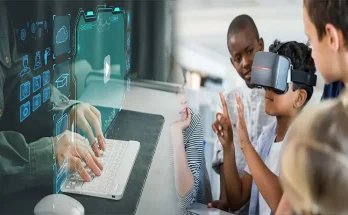In addition to reducing book theft, computers make learning easier and facilitate 21st century skills. Children already use the internet and can access the answers to their questions instantly. They will be delighted to use a computer at school. Moreover, they are more likely to learn more holistically with a computer, because they are used to using their mobiles, tablets, and home computers at home. Computers are an essential tool for schools to offer students an excellent learning environment.
Computers make learning easier
In the past, teachers have spent much of their time seated in front of the classroom, often with the computer looming over their shoulders. Teachers feared that computers were going to take their jobs, but it’s now clear that computers make the job easier. Jostens Learning Corporation spokeswoman Leslie Eicher explains that computers have changed the way teachers teach reading, writing, language arts, and math. Teachers are now spending more time counseling, guiding, and leading instructional teams instead of focusing on lectures. With computers in classrooms, students can work individually or in small groups, and teachers can circulate among students.
They reduce books theft
Using computers to teach students how to write is one of the most efficient ways to combat the problem of books theft. Computers are far more secure than textbooks, which can freeze, crash, or be hacked. Additionally, tablets do not need Wi-Fi networks, so theft of these devices is less of a concern. However, it is important to note that the costs associated with using computers in schools can add up over time.
They facilitate learning
Students can learn by trial and error, and computers facilitate this process. Interactive materials provide a variety of ways to solve problems and communicate with peers. They can access the Internet to gather information, and teachers can create electronic presentations for their students that will be easier to comprehend. Computers also help students find solutions to problems more efficiently. Computers in education have many other benefits, as well. Learn how they can improve your school’s learning environment.
They help develop 21st century skills
Several studies have explored the determinants of 21st century skills. According to the Partnership for 21st Century Skills, students need to have a variety of skills in order to be successful in today’s global society. The skills include literacy, creative thinking, critical thinking, adaptability, social skills, and cross-cultural competence. Aside from these skills, students should have strong computer literacy and be able to communicate effectively across cultures.
They help teachers
In the field of education, computers have been widely used for several reasons. They are useful tools for teaching and learning, allowing students to explore and develop different learning styles. Computers can be used for online learning, making it easier for students to find resources and connect with other people who are facing the same problems. They are also used to quickly find information, and can present the data in a more logical way than paper and pencil.





